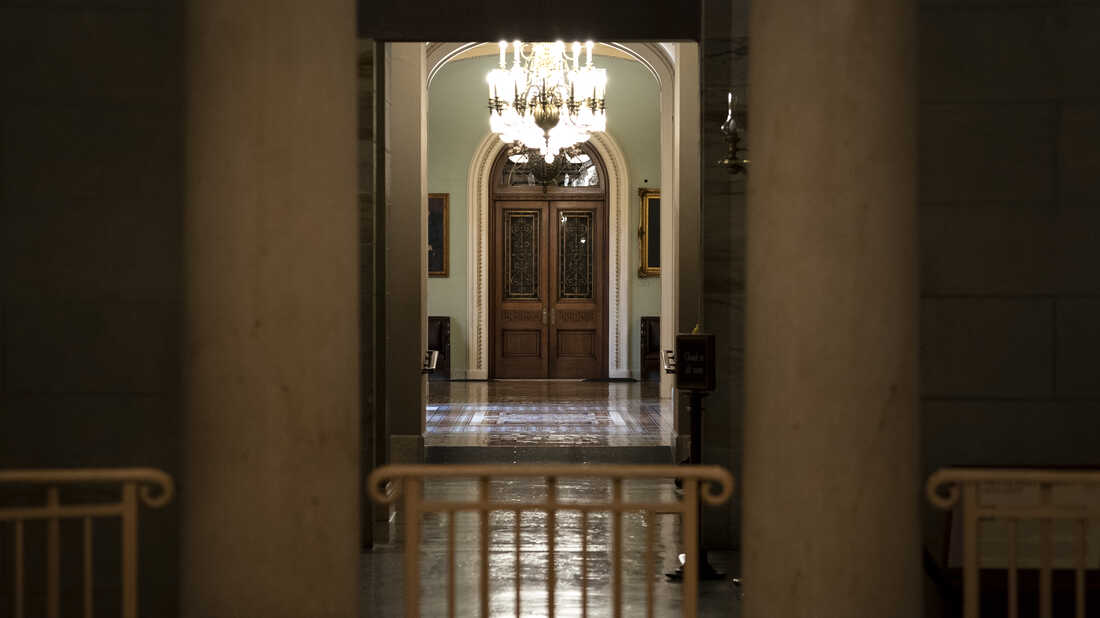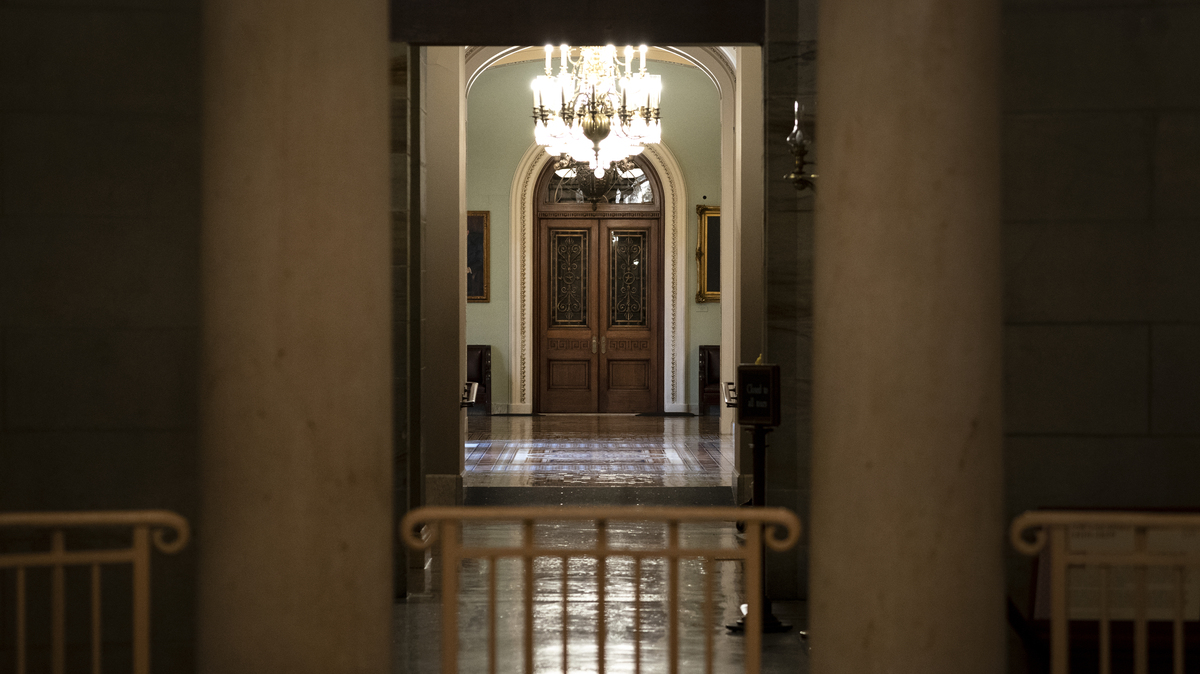
Empty hallways outside the U.S. Senate chamber, where the body will consider major pieces of legislation that could allocate trillions of dollars for infrastructure and other priorities. Drew Angerer/Getty Images hide caption

Empty hallways outside the U.S. Senate chamber, where the body will consider major pieces of legislation that could allocate trillions of dollars for infrastructure and other priorities.
Drew Angerer/Getty ImagesAfter months of bipartisan negotiation, the Senate may finally vote this weekend on a 2,700 page infrastructure bill. It includes $1 trillion in spending on things like roads, bridges, public transit, and broadband.
By nature, a bipartisan bill means there were compromises, which moderates hail as the key to making headway on such a massive undertaking. But progressive democrats, like Rep. Alexandria Ocasio-Cortez, D-N.Y., have criticized their moderate counterparts for foregoing an interest in public good throughout the negotiation process.
NPR's congressional correspondent, Kelsey Snell shares the investments this bill proposes—from unsurprising, conventional issues to niche proposals that may not traditionally be thought of as "infrastructure."
Then, Environmental Protection Agency Administrator Michael Regan and U.S. Secretary of Transportation, Pete Buttigieg discuss how the infrastructure bill aligns with the Biden administration's plans to combat climate change.
Email us at
This episode was produced by Lee Hale and Jonaki Mehta. It was edited by Fatma Tanis. Our executive producer is Cara Tallo.

 Live Radio
Live Radio